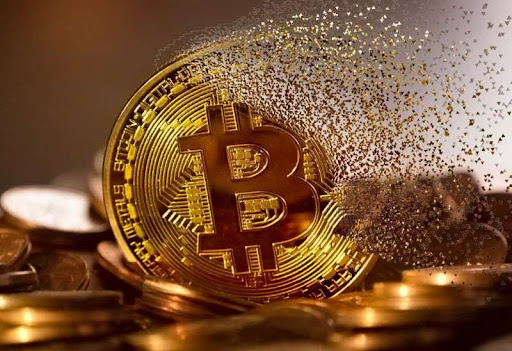Cryptocurrency: the currency of the future

Courtesy of Pxhere.com
June 1, 2022
When you buy cryptocurrency, what are you actually buying? Is it an actual currency, a stock or is it a commodity? Or… is it just thin air? I believe crypto is the currency of the future.
Crypto is big business. According to a Meet the Press report on April 1, cryptocurrency has become a $15.8 trillion industry. News polls show that one in five Americans have traded in cryptocurrency.
In an interview by a Meet the Press reporter with Caitlin Long, a Wall Street veteran for 22 years who invests heavily in cryptocurrency, Long said, “Bitcoin is the 11th largest currency in the world right now … it’s bigger than the value of most countries’ currencies.”
On March 9, President Joe Biden issued an executive order to regulate cryptocurrency. One of the measures called for was for the Department of the Treasury to assess and develop policy addressing the growing cryptocurrency market.
Another measure was for the Financial Stability Oversight Committee to identify and mitigate any risk to the U.S. economy. Also, the order directs all U.S. government agencies to monitor and curtail the illicit use of digital assets.
Biden’s signing of this executive order legitimizes cryptocurrency more than ever in the United States and in the world. Governments are having to acknowledge crypto.
So, what is crypto anyway? As far as stocks, Investopedia defines a stock as “a security that represents the ownership of a fraction of a corporation.” So, cryptocurrency is not a stock because you are not investing in a company.
Then the debate is has cryptocurrency like Bitcoin, the first and largest traded crypto, risen to the status of currency or is it just a commodity at this point? According to Investopedia, “Currency is the medium of exchange for goods or services … usually backed by a government.” This is the dilemma: Bitcoin and other cryptocurrency have virtual, global value set up by the people, not backed by any government.
But is cryptocurrency much different than the historical use of seashells as money set up by indigenous peoples of the Americas, Asia, Africa and Australia? And, is it much different than paper money or credit cards? All of these currencies represent a value which people have put on them to use for trading. Even a $100 bill is just paper.
As the global virtual economy grows, it seems paper money is on its way out. More and more, virtual money is being used in the actual trade of goods, as a currency not just a commodity.

